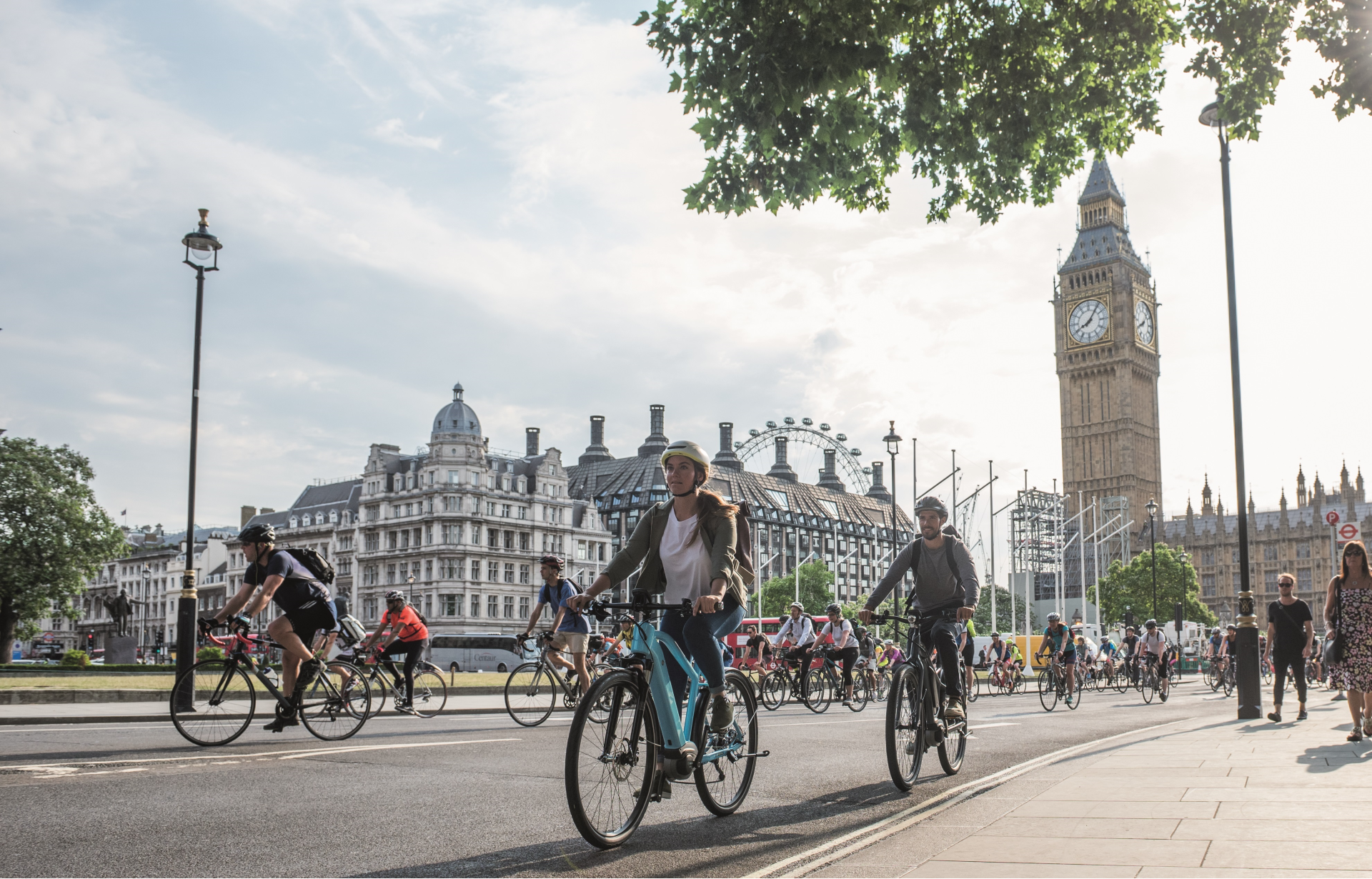'Perfect storm' hits e-bike sales: new research shows UK trailing among European nations
With the UK 29th in a table of 30, retailers cite a multitude of factors


The latest race content, interviews, features, reviews and expert buying guides, direct to your inbox!
You are now subscribed
Your newsletter sign-up was successful
The UK is floundering next to many other European nations when it comes to e-bike sales, according to new research that compared sales figures in 30 countries.
Britain was ranked second from lowest, with just 2.1 sales per thousand people in 2024, compared to top-ranked Norway, which boasted 36.2 sales per thousand.
The research was carried out by Norfolk cycle retailer Paul's Cycles, and compared e-bike sales last year per 1,000 people across 30 European countries.
The UK was second only to Belarus (1.8 sales per 1,000) when it came to lack of take-up, with Bulgaria, Serbia and Spain making up the third to fifth lowest nations in the list.
The difference between the lowest and highest ranked countries was found to be enormous, with top-ranked Norway boasting more than 10 times the sales of the UK.
Denmark was a very close second at 36.1 and in third place, perhaps riding on the crest of a wave of the pro cycling success of Tadej Pogačar and Primož Roglič, was Slovenia with 28.9 sales per 1,000.
Probably unsurprisingly, Belgium and Netherlands were also not far from the top in seventh and eighth place respectively, recording 23.4 and 22.3 sales per 1,000.
The latest race content, interviews, features, reviews and expert buying guides, direct to your inbox!
Researchers found a slight positive correlation between GDP and e-bike sales, with richer countries selling more units – in this respect the UK bucked the trend entirely.
There was also a strong suggestion that additional funding – for example via government schemes – boost sales too, and Paul's Cycles managing director Tom Thornley blamed the UK disappointing figures on "a lack of direct financial support".
“It’s time the government recognised e-bikes as a serious part of the green transport solution," he said. "Cost is still a big barrier for many people and we need targeted financial support whether through purchase grants and rebates, VAT reductions or a fairer, more inclusive Cycle to Work scheme.
“E-bikes are a significant investment and UK schemes are not as widely promoted or generously supported as the subsidies you see in other European countries”, Thornley added. “Government grants have made a real difference in other European countries and that kind of incentive could have a huge impact here too.”
Cycling Weekly spoke to other retailers, both of who also cited an unfair cycle to work scheme as a major challenge to the cycling industry.
Dan Parsons, co-founder of London-based Fully Charged, also said: "I would very much agree that government incentives do help. We’ve seen that in the UK in 2019 and 2021 with the Energy Saving Trust / Department for Transport Cargo Bike Grant Funds – and we’ve seen it work successfully overseas, in France.
But he said that the past few years had seen e-bike retailers battered by what he called "a perfect storm", with factors such as post-Covid overstocking, rising business costs and cost of living, and what he called "fear and scaremongering by media over battery fires demonising e-bikes". He also cited e-bike bans in offices and on public transport, but said that the cycle schemes were the biggest culprit.
Nick Manning, owner of Surrey retailer Beyond Bikes, also said e-bike adoption in the UK were still suffering because of a perception among some cyclists that it constitutes cheating.
"This is another barrier when we have conversations with people – they say 'oh, no, I don't want to cheat. I want to exercise'," Manning said. "There's this myth that you're sitting on a moped. And there's also the bad image of the Deliveroo 'terrorist' riders and the phone snatchers in London."
He also suggested that road e-bike sales in particular were being hit by a speed limit that was inappropriately low at 16mph, and should be brought into line with the USA's 20mph.
"I think it's a massive factor in stalling electric road bike sales," he said. "If you were to go out with a cycling club and join the pacey group, you're going to be struggling because you're carrying a heavy bike, and it hasn't got any assistance above 16mph.
"Whereas, if you're in America, the 20mph speed limit is the perfect cut-off. So in my opinion, if the UK was to adopt the US speed limit of 20mph, it would make significant impact on road bike and gravel bike sales."
Manning also pointed out that cycling road infrastructure also impacted sales and that some but not all cycle to work schemes were making things tough for retailers.
After cutting his teeth on local and national newspapers, James began at Cycling Weekly as a sub-editor in 2000 when the current office was literally all fields.
Eventually becoming chief sub-editor, in 2016 he switched to the job of full-time writer, and covers news, racing and features.
He has worked at a variety of races, from the Classics to the Giro d'Italia – and this year will be his seventh Tour de France.
A lifelong cyclist and cycling fan, James's racing days (and most of his fitness) are now behind him. But he still rides regularly, both on the road and on the gravelly stuff.
You must confirm your public display name before commenting
Please logout and then login again, you will then be prompted to enter your display name.
